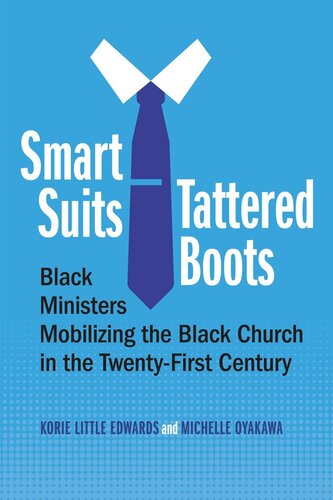

Most ebook files are in PDF format, so you can easily read them using various software such as Foxit Reader or directly on the Google Chrome browser.
Some ebook files are released by publishers in other formats such as .awz, .mobi, .epub, .fb2, etc. You may need to install specific software to read these formats on mobile/PC, such as Calibre.
Please read the tutorial at this link: https://ebookbell.com/faq
We offer FREE conversion to the popular formats you request; however, this may take some time. Therefore, right after payment, please email us, and we will try to provide the service as quickly as possible.
For some exceptional file formats or broken links (if any), please refrain from opening any disputes. Instead, email us first, and we will try to assist within a maximum of 6 hours.
EbookBell Team

4.1
20 reviewsExplores the complex role that Black religious leaders play—or don’t play—in twenty-first-century racial justice efforts
Dr. Martin Luther King Jr. along with many of his Black religious contemporaries courageously mobilized for freedom, ushering in the civil rights movement of the mid-twentieth century. Their efforts laid the groundwork for some of the greatest legislative changes in American history. Today, however, there is relatively limited mass mobilization led by Black religious leaders against systemic racism and racial inequality. Why don’t we see more Black religious leadership in today’s civil rights movements, such as Black Lives Matter?
Drawing on fifty-four in-depth interviews with Black religious leaders and civic leaders in Ohio, Korie Litte Edwards and Michelle Oyakawa uncover several reasons, including a move away from engagement with independent Black-led civic groups toward white-controlled faith-based organizations, religious leaders’ nostalgia for and personal links to the legacy of the civil rights movement, the challenges of organizing around race-based oppression in an allegedly post-racial world, and the hierarchical structure of the Black religious leadership network, which may impede ministers’ work towards collective activism.
Black clergy continue to care deeply about social justice and racial oppression. This book offers important insights into how they approach these issues today, illuminating the social processes that impact when, how, and why they participate in civic action in twenty-first-century America. It reveals the structure and limitations of the Black religious-leader community and its capacity for broad-based mobilization in the post–civil rights era.